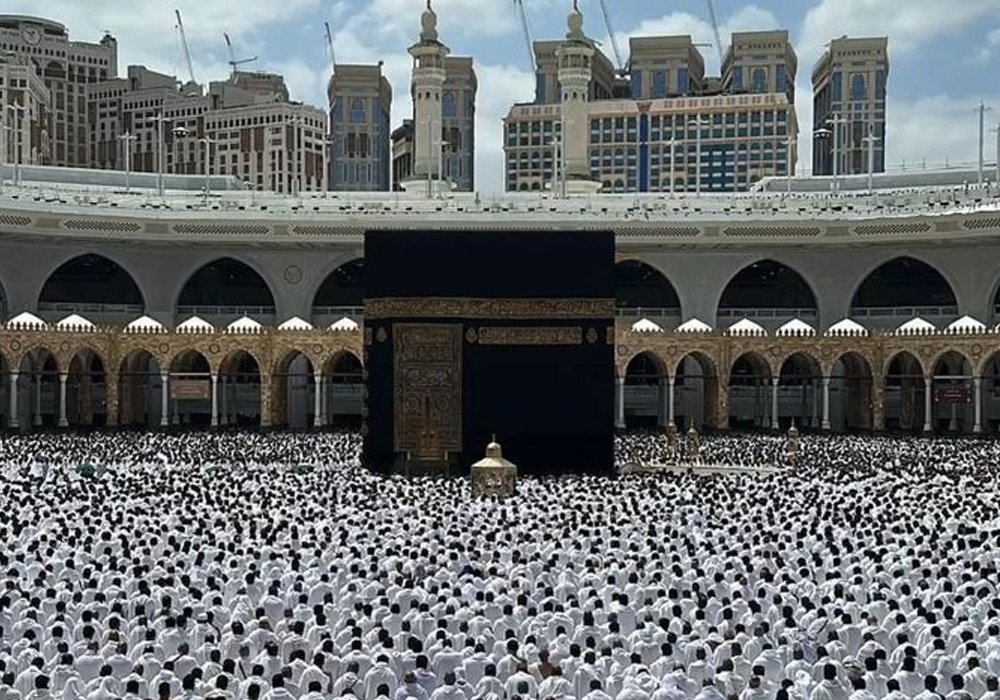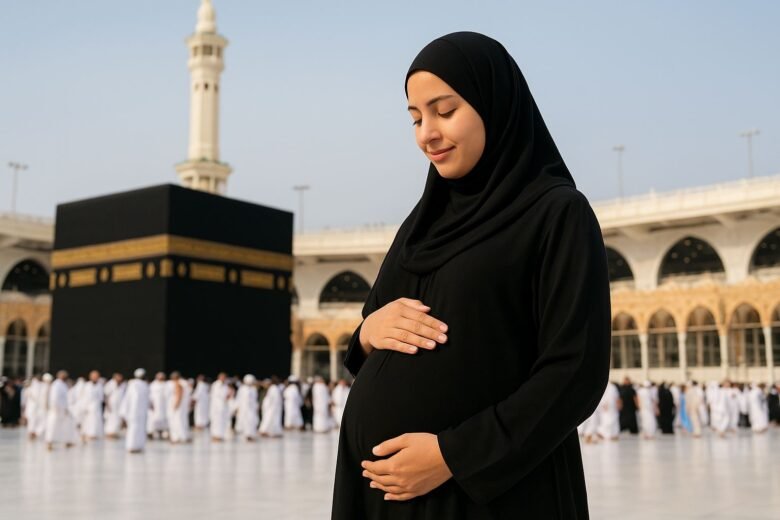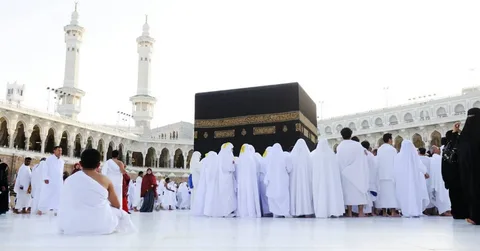For Muslims globally, especially in the US, the most valuable thing that they can do is to learn the distinction between the two holy obligations, Hajj and Umrah. These sacred journeys carry great spiritual importance, but the dissimilarities between them frequently confuse those who are preparing to have their first pilgrimage to Mecca.
This article is focused on presenting a comprehensive description of the difference between hajj and umrah, as well as on bringing an understanding and direction to Muslims who are thinking of these significant religious obligations.
What Is Umrah? (A ritual obligation)
Umrah, which is often referred to as ‘the simpler version of pilgrimage’, is a voluntary act of worship that one can perform at any time in the year. Although there is no compulsion, the same is highly recommended as its spiritual benefits are unmatched. The fundamental point of Umrah is the following:
- It can be performed throughout the year.
- It is relatively short (2-5 days) as compared to Hajj.
- It includes the performance of specific rituals such as Tawaf (going around the Kaaba) and Sa’i (running between Safa and Marwa).
- It is an act of spiritual healing and sacred emotion.
Fact: An overwhelming number of Muslims view Umrah as a very powerful experience that literally enables them to reset their spiritual compass and strengthen their connection to Allah.
“Umrah permits Muslims to get rid of their wrongdoings and develop their faith in a shorter period of time.”
If you’re new to the pilgrimage and want to learn how to perform Umrah step by step, don’t miss our detailed beginner’s guide that walks you through every ritual with clarity.

What Is Hajj? (The Once-in-a-Lifetime obligation)
But Hajj is one of the Five Pillars of Islam and it holds a more distinctive place in Islamic practice. The main characteristics of Hajj are as follows:
- Mandatory once in a lifetime for those who can afford it both financially and physically.
- It is done during specific set dates in the Islamic month of Dhul Hijjah.
- It is more complex since it includes the performance of 5-6 days of rituals.
- Events like standing at Arafat and stoning of the devil and other sacred rituals.
Note: The difference between Umrah and Hajj comes out of the timing and complexity of these two acts. Whereas Umrah is more freeing in its time and easier in its actions by contrast, Hajj is designed around a few days and is full of many complicated rituals.
Hajj vs Umrah — Ritual Difference Explained
To further explain the difference between hajj and umrah, it is necessary to regard their rituals:
| Feature | Umrah | Hajj |
| Timing | Any time of year | Only during Dhul Hijjah |
| Duration | 2–5 days | 5–6 days |
| Obligatory? | No (but highly recommended) | Yes (if eligible) |
| Key Rituals | Ihram, Tawaf, Sa’i | Includes Umrah rituals + Mina, Arafat, Muzdalifah |
| Crowds | Manageable | Very large (millions) |
| Visa Type | Umrah Visa or Saudi Tourist Visa | Hajj-specific Visa only |
This table shows how Hajj has more acts in contrast with Umrah that make it complex and last for a longer period.
Spiritual Rewards of Each Obligation:
Both Umrah and Hajj provide substantial spiritual rewards, but they come in different sizes:
- Umrah: Offers a chance to stay close to Allah, completely changing one’s spiritual path, and receiving this blessing from Allah all year long.
- Hajj: Gives a deep spiritual cleansing and a chance to reset the whole life path. It’s a once in a lifetime chance and every Muslim wished for it in his/her life.
Hadith: The Prophet Muhammad (peace be upon him) stressed the need for both by saying: “The performance of Umrah is an expiation for the sins committed between it and the previous Umrah.” (Sahih al-Bukhari)
Which one should you be performing first?
Umrah is one of the most feasible and common options for Muslims in the USA who are new to the spiritual path. They are better if they have one or more of the following:
- Youthful workers who can take just a few days off work.
- Parents with children who want to perform the obligation and are bound to take their child with them.
- Individuals who are sensitive to the environment of the holy places, full of crowds.
First time hajjis from the United States find that Umrah is a wonderful way to be at peace with themselves and get a clear sense of direction.
A checklist of Arranging Your First Umrah in the USA with Majmua
First, of course, you need to make yourself ready before planning it, then you will only pray for enough money. But the journey of a first-time Umrah pilgrim involves the following checklist:
- Pick out a good time for traveling (look for periods with the least extremes, whether it’s too hot or too cold)
- Be part of a travel group with a certificate, especially if you’ve never traveled before or if you are going alone.
- Scan for bids that may contain the following:
- Permits and flight assistance
- Closest lodging to the Kaaba
- Conducted rituals by experienced scholars
- Group support (e.g., WhatsApp groups, reminders, Ziyarah tours)
Next Steps for American Muslims
If you’re thinking of going for either Hajj or Umrah:
- Meet with a local Islamic scholar or a person who has been on the journey before
- Find out and inquire about good travel agencies that organize Islamic pilgrimages
- Be prepared for the trip financially and practically, especially in the case of the Hajj
- Get through more frequent prayers and study more about religious books.
Tip: Here is a tip, whether it is the sightseeing charm of Umrah that you would like to go all year round or the overpowering impression of a lifetime experience of Hajj, both are channels of spiritual expansion and attachment to Allah.
Essential Key comparison between Umrah vs Hajj Combined—And That’s Below
We must get the idea that Hajj and Umrah are blessings and they need to be attended, but the way they affect people is not linear. What is more, Umrah is a wonderful start to a person’s journey toward Allah. It gives pilgrims a chance to better understand the places and their rituals, and thus they can further their spirituality and eventually have a more enjoyable experience in the Hajj in the future.
A major difference of Hajj from Umrah is not only their rituals, but also their effect on the spiritual path of a Muslim. Unlike Umrah, which is a single and cyclical spiritual exercise, Hajj is a task that must be done once in a lifetime and is definitely a responsibility of the person to ensure their own comfort and safety in their traveling experiences.
To grasp the difference between Umrah and Hajj facilitates the decision-making and opens up new, varied spiritual journeys for Muslims. Whether someone chooses to do the Umrah or only Hajj when the time arrives is a life-changing moment.
Conclusion: Two Sacred Journeys in Harmony
Realizing the hajj or umrah difference is something which is essential for every Muslim, including those in the USA, owing to the fact that one’s spiritual travel goal. Nevertheless, while both are sacred pilgrimages, they may have different roles in the life of a Muslim:
- With Umrah, a person has an alternative and frequent spiritual reform.
- Hajj is a must and should be done only once in life, which makes it a truly special journey
The choice of going with hajj or umrah sometimes might be affected by one’s condition, the preparation for a spiritual journey, and practical experience. A lot of Muslims, especially in the USA, have found that the beginning of Umrah gives them not only the exploration of the holy sites but also of the prescribed actions.
Even if you follow one journey before the other, both hajj and umrah are the best choices for spiritual growth, self-reflection, and closeness to Allah that one can ever have. The most important thing is to be honest, get ready, and have an open mind to the transformation.
As you are thinking about your way to commune with the holy place,s know that whether it’s hajj or umrah and the feelings that bind you with these holy pilgrimages are sacred, and may Allah be with you every step of the way. Let us connect you with Majmua to get started on your sacred journey.



